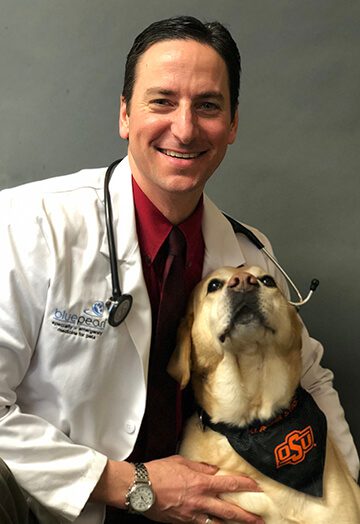Specialist Tips for Animal Nourishment From a Veterinarian
Recognizing the nutritional needs of pet dogs is critical for their general health and long life. Vets advise a well balanced diet plan that satisfies private variables such as task, type, and age level. Yet, with the plethora of pet dog food choices offered, pet owners usually discover themselves navigating a landscape rife with misinformation and misconceptions. As we discover crucial pointers from veterinary specialists, it becomes apparent that appropriate nourishment is not just concerning what is fed yet entails a much deeper understanding of each pet's one-of-a-kind demands. What vital understandings could transform your approach to pet dog nutrition?
Recognizing Nutritional Needs
Comprehending the dietary demands of animals is essential to guaranteeing their overall wellness and health. Similar to people, pet dogs require a balanced diet that provides vital nutrients, consisting of healthy proteins, fats, minerals, vitamins, and carbs. These nutrients play important functions in numerous bodily features, such as energy manufacturing, immune action, and tissue repair service.
They are made up of amino acids, some of which are necessary and should be obtained from food. Carbohydrates offer as a primary energy resource and can support digestion health when they include fiber.
Minerals and vitamins are necessary for metabolic processes and maintaining total health. Each pet dog might have distinct requirements based on factors such as age, breed, task degree, and health and wellness status. It is necessary to seek advice from a vet to determine the details dietary needs tailored to your pet dog's specific needs, ensuring they obtain optimal nutrition throughout their life stages. Appropriate understanding and focus to these dietary components can substantially add to a pet's longevity and lifestyle.

Choosing the Right Food
Selecting the ideal food for pet dogs is an important element of satisfying their dietary requirements. It is important to take into consideration aspects such as age, type, dimension, and health and wellness condition when choosing a pet dog food. Puppies and kittens need formulations that support growth and advancement, while grown-up animals need balanced diet regimens that preserve their health. Senior family pets may gain from foods designed to attend to age-related issues, such as joint health or weight monitoring.
When examining pet food options, search for products that fulfill the Organization of American Feed Control Officials (AAFCO) standards, which ensure that the food provides balanced and full nourishment. Components must be top notch, with genuine meat as the key source of protein. Prevent foods with too much fillers, fabricated additives, or by-products, as these can interfere with the general nutritional worth.
Consulting with a vet can offer customized recommendations based on your pet's specific requirements. Additionally, transitioning in between foods should be done gradually to prevent stomach trouble. By taking these actions, pet proprietors can ensure that they are providing their fuzzy buddies with the finest feasible nourishment for a healthy and balanced and satisfied life.
Common Myths Concerning Pet Food
Disproving misconceptions bordering pet food is important for guaranteeing ideal nutrition for our furry buddies. One prevalent myth is that all grain-free diets are exceptional for pet dogs. In truth, grains can offer essential nutrients and are not inherently damaging. A well balanced diet plan can consist of grains, provided they are not causing any intolerances or allergic reactions.

In addition, several pet proprietors think that "costs" or "all-natural" labels assure better. Nevertheless, these terms are usually unregulated and do not necessarily show remarkable nutritional worth. It is vital to look at component checklists and dietary accounts instead.
Special Factors To Consider for Different Breeds
When it involves pet nourishment, unique considerations have to be considered for different breeds, as each breed can have special dietary requirements and level of sensitivities. Big types such as Terrific Danes and Saint Bernards are prone to bone and joint issues and may profit from diet regimens developed to sustain joint wellness, often featuring active ingredients like glucosamine and omega fatty acids. Conversely, little types like Chihuahuas might need greater calorie thickness to satisfy their power degrees, requiring solutions dig this that are abundant in nutrients however reduced in mass.
In addition, certain types might be inclined to certain wellness concerns, such as food allergies or level of sensitivities. Types like Labrador Retrievers may battle with weight problems, calling for careful portion control and a balanced diet regimen to preserve a healthy weight. On the various other hand, breeds such as Dachshunds may be much more vulnerable to spinal issues, triggering a demand for diet plans that advertise spine wellness and weight monitoring.
Ultimately, comprehending these breed-specific dietary demands is vital for pet proprietors. Consulting with a veterinarian can assist in choosing the most ideal diet regimen customized to a specific animal's health and wellness, type, and age condition, making certain optimum nutrition and health.
Significance of Normal Veterinary Examinations
Comprehending the one-of-a-kind nutritional requirements of various breeds is just one facet of responsible pet ownership; normal vet check-ups play an essential role in preserving general health and wellness. These check-ups are vital for very early detection of health issues, making sure that any type of prospective issues are addressed before they come to be major. Normal visits enable veterinarians to monitor your pet's weight, oral health, and important indicators, which are crucial indications of general health.
Furthermore, routine check-ups allow veterinarians to provide tailored dietary suggestions based upon your pet's private wellness status - Animal Chiropractor Greensburg. As family pets age, their dietary demands might alter, and modifications may be needed to stop excessive weight or nutrient shortages. Preventive care, including vaccinations and parasite control, is likewise an essential component of these check outs, safeguarding your pet dog from various illness
Along with physical exams, these appointments offer a superb chance for family pet owners to go over behavioral changes or problems about their family pet's eating routines. By prioritizing routine veterinary examinations, website link family pet owners can ensure a much longer, healthier life for their hairy buddies, inevitably boosting their top quality of life.
Verdict
To conclude, making certain optimum pet dog nutrition requires a thorough understanding of specific nutritional needs, proper food choice, and awareness of widespread myths. Unique factors to consider for various types need to be accounted for, and regular veterinary examinations play a vital function in keeping an eye on health and nutritional adjustments. Abiding by AAFCO requirements and speaking with vets before making nutritional modifications will boost the well-being of family pets, inevitably contributing to their long life and top quality of life.
With the multitude of pet dog food alternatives available, pet owners often discover themselves navigating a landscape swarming with false information and misconceptions. Each family pet might have distinct demands based on variables such as age, breed, activity degree, and wellness status. It is essential to take into consideration variables such as age, health and wellness, size, and type standing when selecting a pet food. Senior animals might benefit from foods designed to resolve age-related issues, such as joint wellness or weight monitoring.
Recognizing the distinct dietary requirements of different breeds is only one element of my blog liable family pet possession; regular vet check-ups play an important duty in keeping total health.